Addressing the challenges of sustainable community development requires input from multiple sectors and stakeholders to ensure comprehensive perspectives are included in the solutions. But, how does one capture and synthesize meaning from a multitude of thoughts, perspectives and ideas?
In our forum on rethinking the meaning of ‘growth’ and our climate innovation peer-to-peer learning exchange, we employed a graphic recording technique. Graphic recording is a method of taking notes through interlinked blends of visuals and text, producing mind maps that capture emergent ideas and patterns from discussion. These mind maps draw linkages between ideas and illuminate the major dialogue themes, thus providing a ‘picture’ of the discourse outcomes and ideas. An additional advantage of graphic recording is that it produces aesthetically appealing and accessible visuals, increasing the potential of capturing attention and drawing in audiences (Lavie & Tractinsky, 2004). We are vitally interested in revealing and re-discovering the patterns, especially the unconscious, that do not lead to more sustainable futures.
Click on the images below to see expanded versions of mind maps.
De-growth: A Critical Juncture?
This regional workshop explore the de-growth movement and alternatives to constant economic growth was held at Royal Roads University. The workshop featured virtual and face-to-face panels representing a diversity of perspectives, expertise and experiences drawing from economics, sustainable development, ecology and governance.
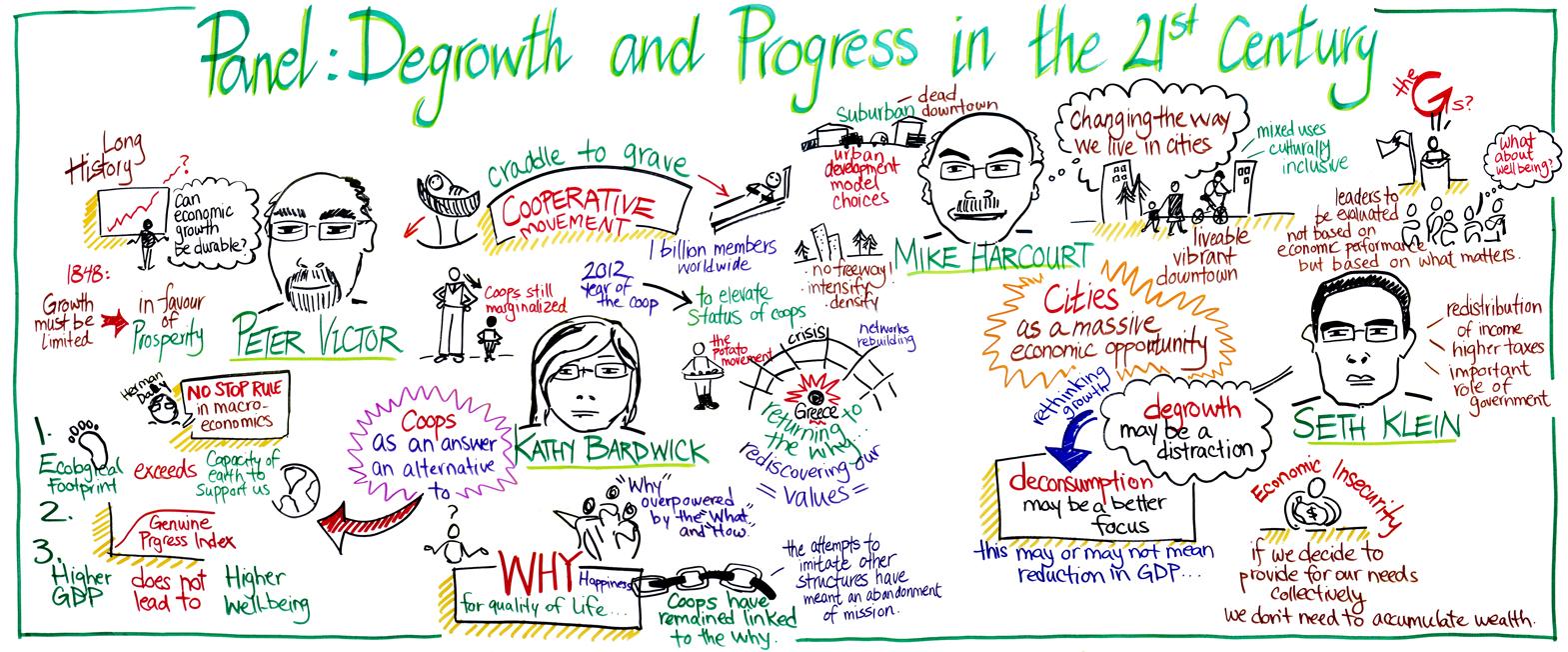 |
Panel on Degrowth & Progress in the 21st Century
The panel included the following.
Dr. Peter Victor, York University
Kathy Bardswick, CEO, Co-operators Group Limited
Mike Harcourt, Chair of QUEST, Associate Director, UBC Continuing Studies Centre for Sustainability
Seth Klein, Director, Canadian Centre for Policy Alternatives
|
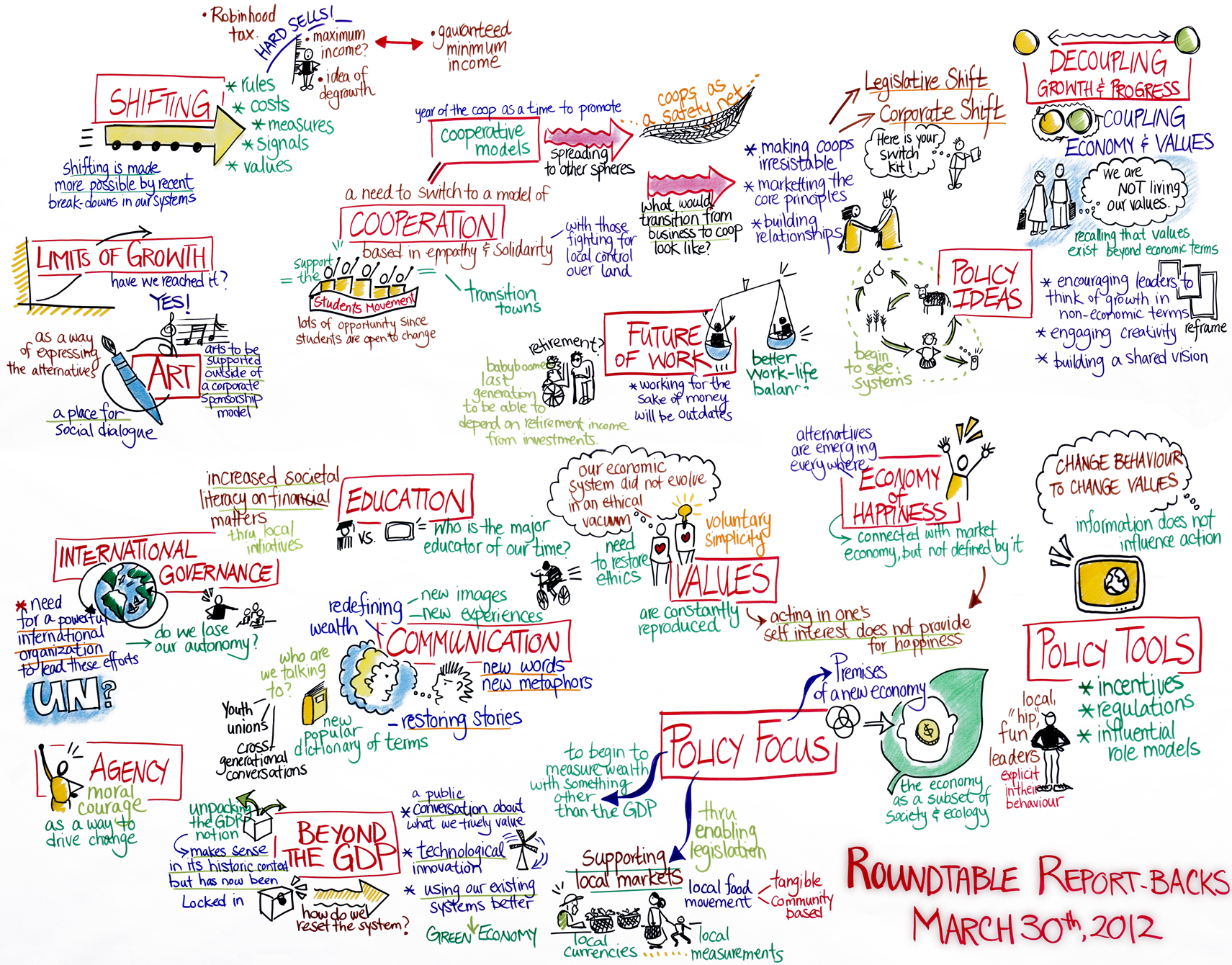 |
Roundtable Reports
This workshop brought together a diverse group of researchers, practitioners and civil society leaders, located in Victoria, Winnipeg, Toronto, Montreal, and Haverford, PA. Participants listened to expert keynote and panel presentations on the implications of perpetual economic growth, and then convened for roundtable discussions. This image reports the results from each roundtable discussion.
|
MC3 Peer-to-Peer Learning Exchange
Organized through the Meeting the Climate Change Challenge (MC3) research project, this peer-to-peer learning exchange, held at Royal Roads University, brought over forty researchers, policy makers, practitioners and community climate leaders and champions, to share information about the drivers of climate action and innovation in BC.
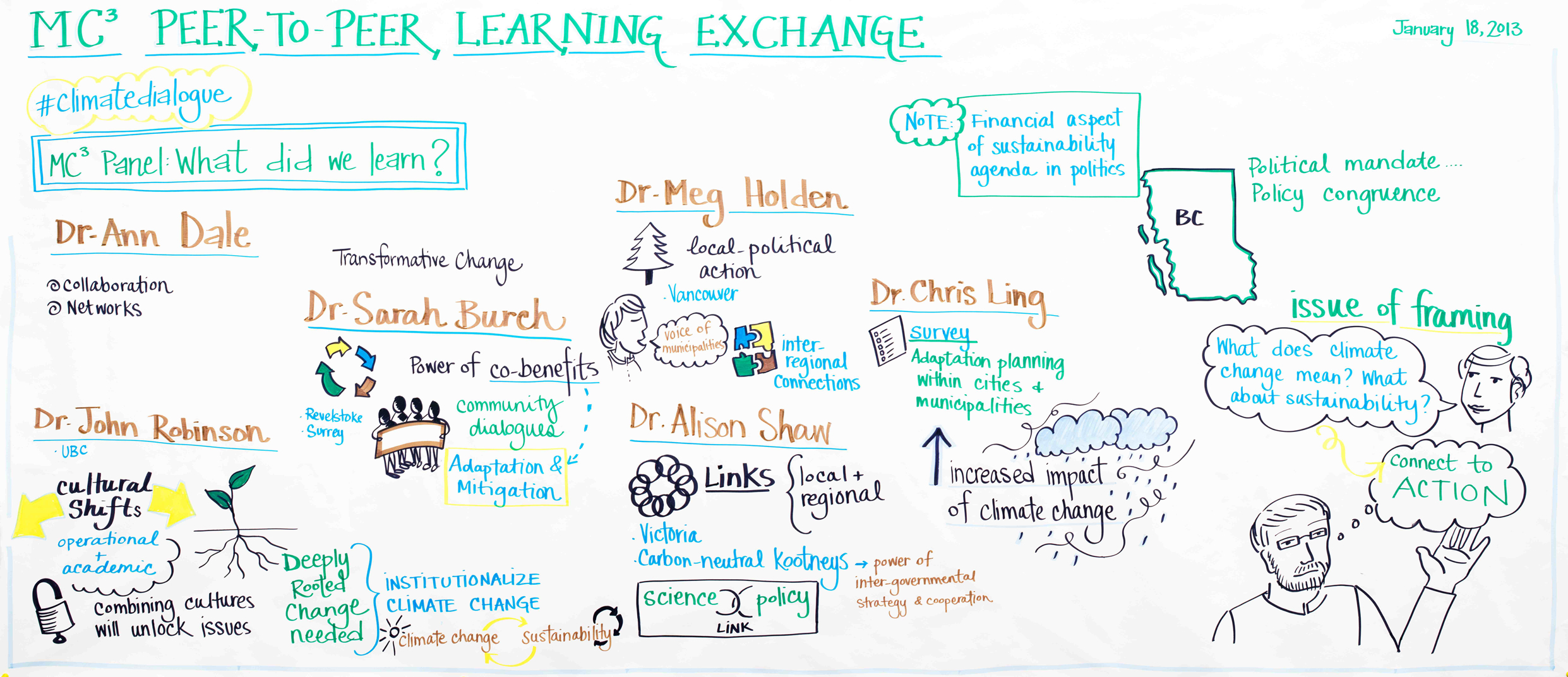 |
MC3 Panel: What did we learn?
This image represents ideas presented from the MC3 research partners and a related research project, National Municipal Adaptation Project (NMAP). The panel included the following.
Professor Ann Dale (Moderator), Royal Roads University
Professor John Robinson, University of British Columbia
Dr. Meg Holden, Simon Fraser University
Dr. Sarah Burch, University of British Columbia
Dr. Alison Shaw, Royal Roads University
Dr. Chris Ling, Royal Roads University
|
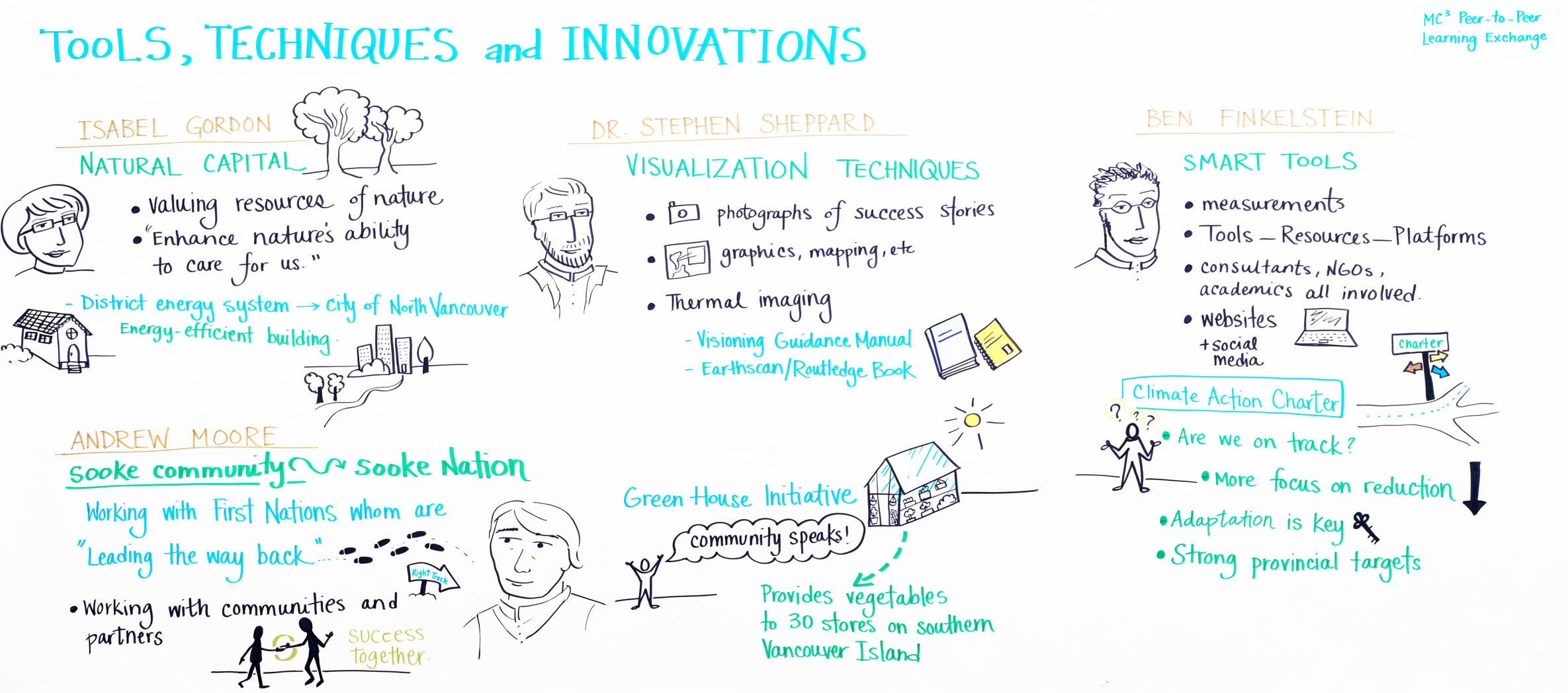 |
Panel on Tools, Techniques and Innovations
This image represents ideas presented from the MC3 research partners and a member of the research team, Dr. Stephen Sheppard. The panel involved the following.
Ben Finkelstein, Manager, Green Communities, Climate Action Secretariat
Isabel Gordon, Director of Finance, City of North Vancouver
Dr. Stephen Sheppard, Professor, University of British Columbia
Andrew Moore, Solar Community Program Manager
|
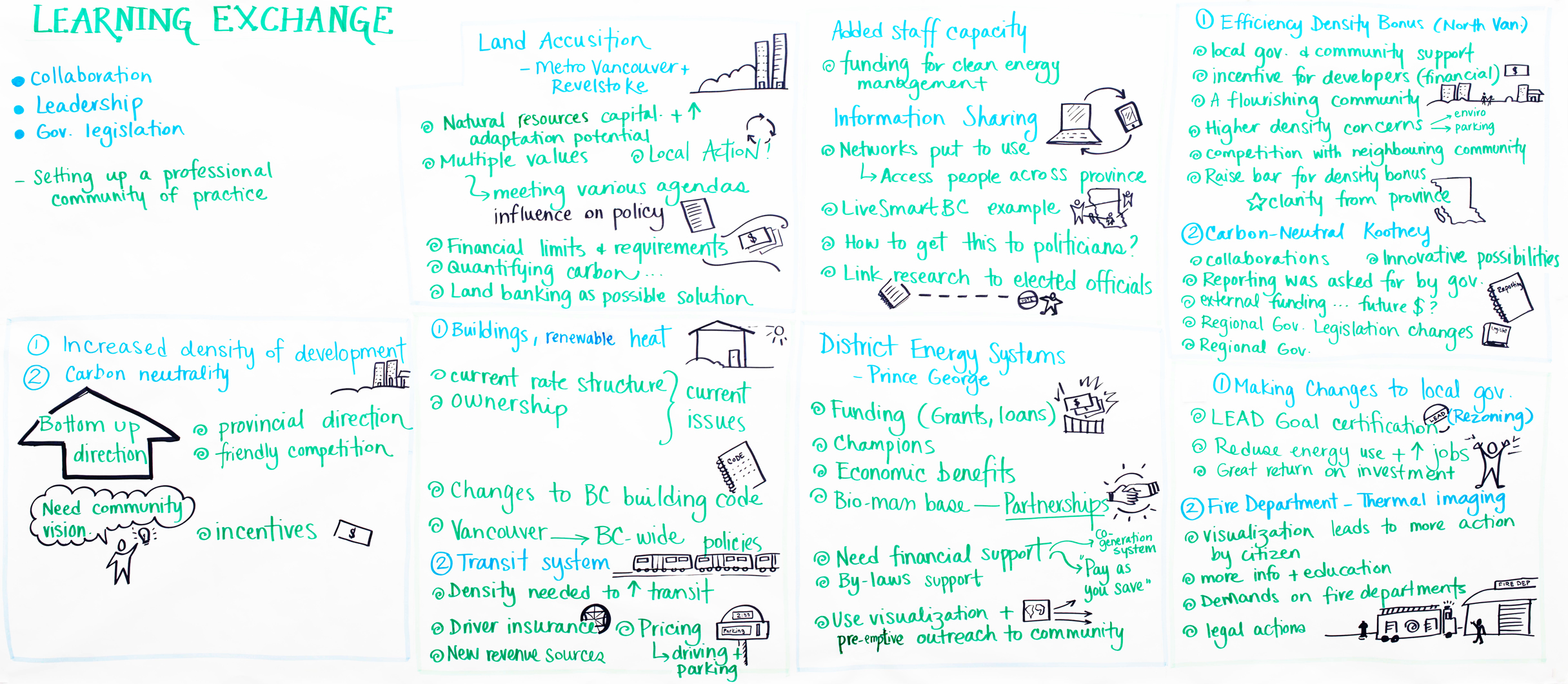 |
Learning Exchange Reports
This workshop was designed as a peer forum bringing together diverse climate leaders and champions to exchange, discuss and reflect upon innovative climate solutions. Key questions included: What innovations are leading BC communities taking on climate change? What are the drivers and how can other communities learn from these examples? How are these actions changing the way things are done and how decisions are made at the local scale?
|
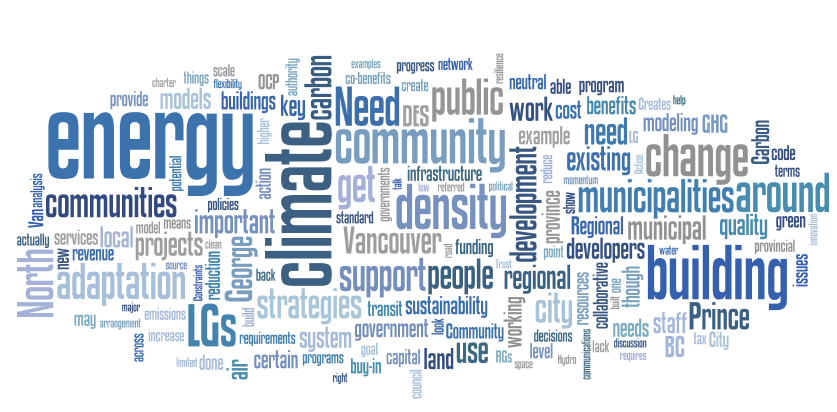 |
Roundtable Discussion Word Cloud
The word cloud was developed from the notes taken by MC3 research team members and partners at the roundtable discussions. Seven roundtables, each consisting of a diverse mix of practitioners, academics and / or local government, engaged in discussion on community climate change innovations, the drivers of these innovations and the outcomes of various community climate action initiatives. Note-taking captured the breadth of topics and substantive content of the discussions, and this word cloud shows common reoccurring themes and their relative strengths (by size of the word) captured in the notes. Proper names of roundtable participants and grammatical terms (e.g., prepositions) were removed from notes before creating the word clouds to ensure that they represent conceptual content of the discussions.
|
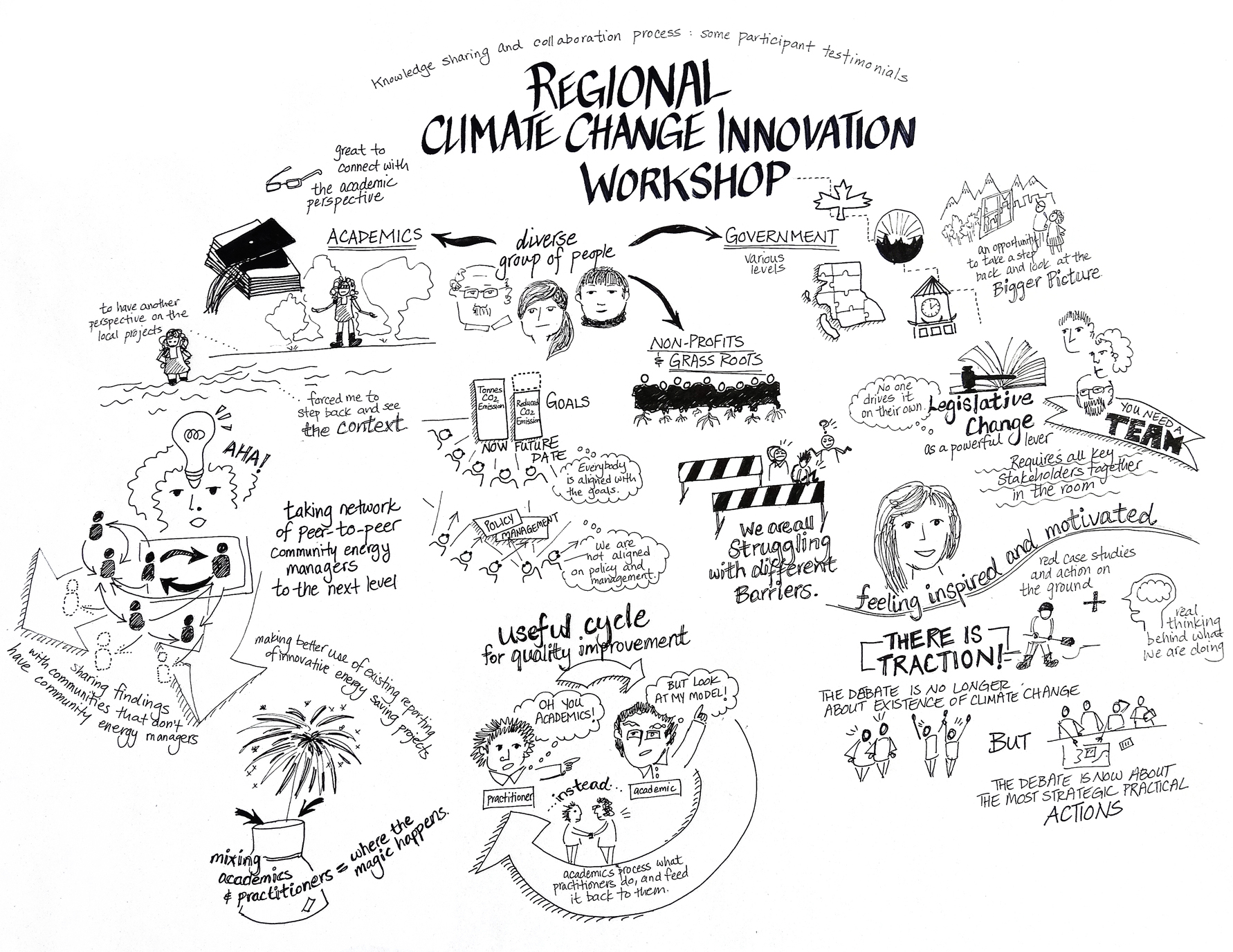 |
Network Learning: Linking Research with Practice
Following the forum, participants were invited to comment on the learning exchange process and these insights were captured through video interviews. They were used to create an animation, entitled Network Learning: Linking Research with Practice, which is available from the CRC HEADTalks channel. This image is the summary mind map featured in the animation.
|
Click here to return to main visualizations page.
Lavie, T., & Tractinsky, N. (2004). Assessing dimensions of perceived visual aesthetics of web sites. International journal of human-computer studies, 60(3), 269-298.






